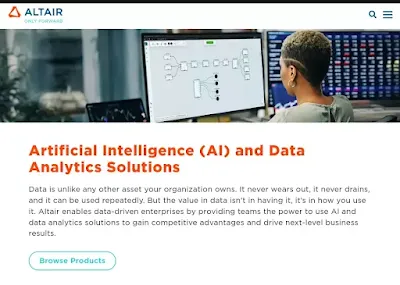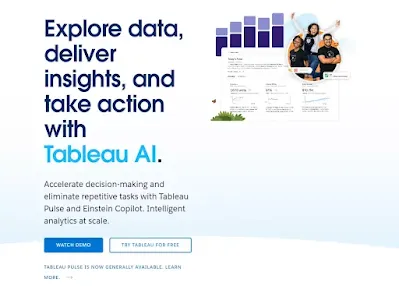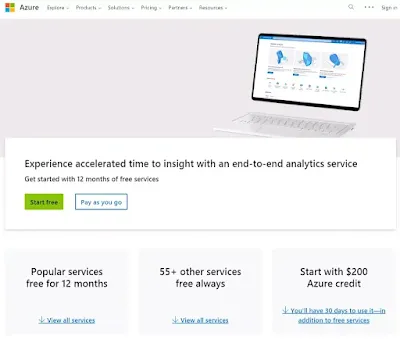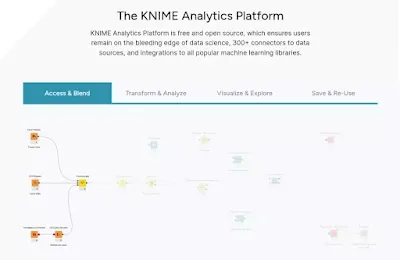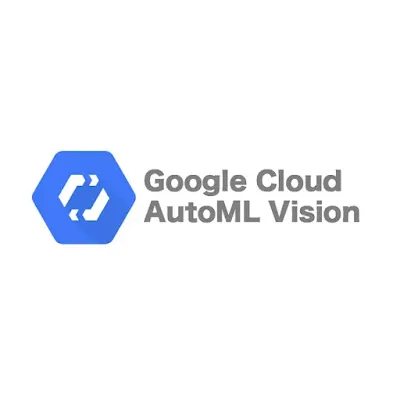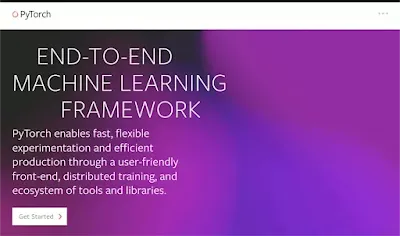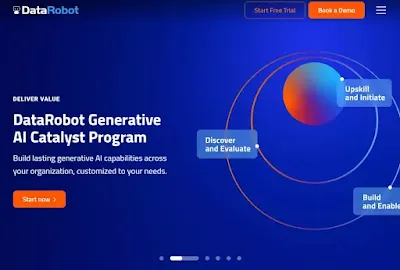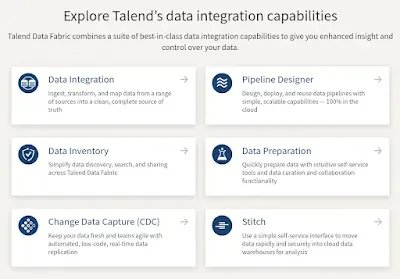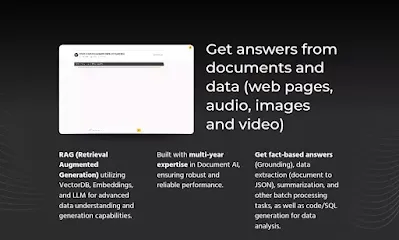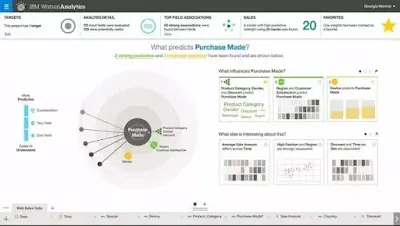Deciphering the Power of AI in Data Analysis - An In-depth Review of Top Tools

AI and Data Analysis: A Match Made in Heaven
The nexus between AI and data analysis is transforming the way businesses operate. Traditionally, data analysis was a manual, time-consuming process that required a significant level of expertise. However, AI has revolutionized this landscape by automating data analysis and enhancing its efficiency and accuracy.
AI data analysis involves the application of AI techniques such as machine learning and deep learning to interpret and derive insights from complex datasets. These techniques enable the processing of vast amounts of data, identification of patterns, and prediction of future trends, providing businesses with a competitive edge.
Unleashing the Power of AI in Data Analysis
Harnessing AI for data analysis involves several steps. These include defining the analysis objectives, collecting and preparing data, selecting appropriate AI techniques, training and evaluating AI models, extracting and engineering features, deploying models, interpreting results, visualizing insights, and continuously refining the analysis process.
An essential aspect of this process is the ethical considerations involved in AI data analysis. Businesses need to ensure that the AI models they use are transparent, fair, and respect users' privacy.
Top 10 Tools Leveraging AI to Analyze Data
Several tools have emerged that utilize AI to analyze data. Here's an in-depth look at the top 10 tools that are making a significant impact in this space.
1. RapidMiner
RapidMiner is a data science platform that offers an intuitive user interface and a robust set of features for data analysis. The platform's drag-and-drop framework generator simplifies the data analysis process, making it accessible to users with varying skill levels.
Pros:
- Easy to use with an intuitive user interface
- Supports multiple data sources
- Offers a comprehensive suite of AI-powered tools
Cons:
- Limited features in the free version
- Can be slow with large datasets
2. Tableau
Tableau is an analytics and data visualization platform renowned for its dynamic dashboards and easy data visualization capabilities. The platform's AI-powered feature, Ask Data, enables users to pose queries in simple language and receive quick graphical responses.
Pros:
- Interactive and visually appealing dashboards
- Supports a wide range of data sources
- No coding required
Cons:
- Can be expensive for small businesses
- Learning curve for beginners
3. Microsoft Azure Machine Learning
Microsoft Azure Machine Learning is a cloud-based service that offers versatility for data processing tasks of varying complexity. It enables data scientists and machine learning experts to use their existing modeling and data processing skills.
Pros:
- Wide range of ML features
- Integrates well with other Azure services
- Strong support and documentation
Cons:
- Can be expensive for large scale applications
- Requires a good understanding of Azure environment
4. KNIME
KNIME is an open-source platform that offers a complete toolkit for data analysis. Its comprehensive set of AI-powered tools supports a range of data science requirements, from machine learning to ETL and spreadsheet automation.
Pros:
- Free and open-source
- Supports a wide range of data sources
- User-friendly interface
Cons:
- Limited features in the free version
- Requires some technical knowledge
5. Google Cloud AutoML
Google Cloud AutoML offers a range of components for building machine learning models in a user-friendly and organized manner. It allows users to create custom machine learning models without major coding experience.
Pros:
- User-friendly interface
- Supports a wide range of data types
- Seamless integration with other Google Cloud services
Cons:
- Can be expensive for large-scale applications
- Requires familiarity with the Google Cloud Platform
6. PyTorch
PyTorch is a comprehensive framework for creating deep learning models. It offers a wide range of tools and libraries for various tasks, including computer vision and reinforcement learning.
Pros:
- Powerful for deep learning tasks
- Good community support
- Seamless integration with Python
Cons:
- Some features require advanced knowledge
- Not as beginner-friendly as some other tools
7. DataRobot
DataRobot is an AI platform that accelerates model building through automated machine learning capabilities. It enables businesses to operate on any blend of public clouds, data centers, or at the edge, providing valuable insights and accurate predictions.
Pros:
- Automates the machine learning process
- Supports a wide range of data sources
- User-friendly interface
Cons:
- Can be expensive for small businesses
- Limited customization options
8. Talend
Talend is a comprehensive platform for data integration, monitoring, and administration. It supports any data source or structural layout, enabling users to manage and analyze data on various big data platforms such as Hadoop, Spark, or Hive.
Pros:
- Comprehensive platform for data integration
- Supports big data platforms
- Good community support
Cons:
- The user interface could be more intuitive
- Requires some technical knowledge
9. H2O.ai
H2O.ai is an open-source, in-memory, distributed machine learning and predictive analytics platform. It enables users to build and deploy machine learning models quickly and efficiently, making the analysis of large datasets efficient through scalability and performance upgrades.
Pros:
- Open-source and easy to use
- Supports large datasets
- Strong community support
Cons:
- Limited features in the free version
- Requires some knowledge of machine learning
10. IBM Watson Analytics
IBM Watson Analytics is a cloud-based service that offers powerful data mining and predictive analytics. It helps users find associations and patterns in their data, identifying trends and providing valuable insights.
Pros:
- Powerful AI capabilities
- User-friendly interface
- Good community support
Cons:
- Can be expensive for small businesses
- Requires some knowledge of IBM services
Final Thoughts
The tools mentioned above are just a glimpse into the world of AI for data analysis. There are numerous other tools available, each with its unique strengths and capabilities. The key is to choose a tool that best aligns with your business needs and objectives.
While AI has significantly automated data analysis, it's essential to remember that AI is only as good as the data it's trained on and the humans who interpret its outputs. Therefore, it's critical to pair these powerful tools with a solid data strategy and skilled data professionals.
Embrace the power of AI to analyze data today and unlock the full potential of your business data. After all, in today's data-driven world, those who can best leverage data will have the competitive edge.
Remember, the journey of using AI tools to analyze data might seem overwhelming at first, but with the right tools and resources, it's a journey worth embarking on. So, get started today and see the transformation in your data analysis process!
As the saying goes, "The best way to predict the future is to create it." And with AI tools for data analysis, you're not just predicting the future; you're shaping it.

.png)
